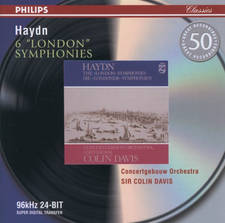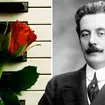Giacomo Puccini: Madame Butterfly – short opera summary
9 May 2025, 13:56

Beloved and contentious: Madama Butterfly is both one of Puccini’s most revered works, but continues to raise questions about depictions of race, culture and gender in opera.
Listen to this article
Madame Butterfly is based on a short story of the same name by John Luther Long and premiered in February 1904.
As well as being one of Puccini’s most well loved operas, despite opening to lukewarm reception, it was also the basis for Claude-Michel Schönberg’s 1989 musical, Miss Saigon.
The opera has also been criticised for its outmoded presentation of race, gender, and culture, which many directors have had to tackle in order to make their productions relevant today.
Here’s a look at the plot...
Read more: Why Puccini would love 'Miss Saigon'

Act I
In Nagasaki, Japan, US naval officer Lieutenant Benjamin Franklin Pinkerton rents a home that comes with a geisha wife, 15-year-old Cio-Cio-San, known as ‘Butterfly’. He tells the American Consul, Sharpless, that although he will marry Butterfly, he considers the arrangement temporary and intends to eventually leave her for a “real” American wife (‘Dovunque al mondo’).
Cio-Cio-San arrives at the house with her friends and charms the room with her gentle manners and youth. She explains her fallen social position, and how her father died by imperial command (‘Ancora un passo or via’).
During the wedding ceremony, Cio-Cio-San’s relatives attend, but as festivities begin, her uncle the Bonze bursts in, denouncing her for converting to Christianity. The relatives curse her and leave (C’è entrato il diavolo!). Pinkerton comforts her and the newlyweds sing a passionate duet, ‘Vogliatemi bene’ and declare their love.

Puccini: Madama Butterfly, Act I: Dovunque al mondo
Act II
Three years later, Pinkerton has left and has not returned. Cio-Cio-San still waits for him, convinced of his return. Her loyal servant Suzuki worries and prays (‘Scuoti quella fronda di ciliegio’). Cio-Cio-San sings her most famous aria, ‘Un bel dì vedremo’ in which she imagines seeing Pinkerton’s ship return and their joyful reunion.
Sharpless arrives with a letter from Pinkerton. Before he can read it, they are interrupted by Goro, the marriage broker, and Prince Yamadori, a wealthy suitor. Cio-Cio-San rejects Yamadori, insisting she is still married.
Sharpless attempts again to read the letter. Cio-Cio-San proudly brings in her son, Sorrow, and declares that Pinkerton will return for both of them (‘Che tua madre’).
A cannon-shot is heard: a ship enters the harbor. Cio-Cio-San rushes to see it: it's the Abraham Lincoln, Pinkerton’s ship. She and Suzuki scatter flowers and decorate the house in anticipation (‘Scuoti quella fronda di ciliegio’).
She waits all night, holding her son, and eventually falls asleep.

Puccini - Mme Batterfly - Un bel di, vedremo - Ying Huang - Cio-Cio-San (Mme Butterfly)
Act III
At dawn, Cio-Cio-San sleeps. Pinkerton arrives with his American wife, Kate, and Sharpless. Suzuki learns their true purpose: they wish to take Cio-Cio-San’s child back to America. Pinkerton, overwhelmed with guilt, cannot face her and flees (‘Addio, fiorito asil’).
Suzuki and Sharpless reveal the truth to Butterfly. When she sees Kate, she realises everything (‘Io so che alle sue pene’).
Cio-Cio-San agrees to give up her son, but only if Pinkerton comes to see her. She bids farewell to her child in a heartbreaking moment (‘Tu? Tu? Piccolo iddio!’).
She blindfolds the child, gives him an American flag to hold, and disappears behind a screen. There, she takes her own life with her father’s knife. As she dies, Pinkerton rushes in too late. He is forced to witness the impact of his actions.

Puccini: Madama Butterfly, Act III: Con onor muore – Tu, tu, piccolo iddio!
















